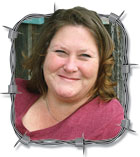It’s a tough time for farmers and ranchers in the Ozarks.
Most of the region continues to be under extreme drought conditions, and there doesn’t seem to be any relief in sight. What rain does come is very spotty. Bill and I were working at our Lion’s Club Fourth of July event and poured for about half an hour. We didn’t get a drop at the house, which is a little over a mile away. It’s like we can’t win some days for losing.
The funny thing about that brief storm, not a puddle remained an hour or so later; the thirsty ground soaked up every last drop of the precious moisture.
Many producers are just days away from making the hard choice to cull hard or start feeding hay, if they have any hay to feed. Row crop farmers are keeping their fingers crossed.
The Ozarks isn’t alone in this weather plight.
Heavy rains and high winds in Iowa, record temperatures in Texas, flooding in Colorado, hurricanes in Florida, late freezes in Vermont, and numerous other weather events across the country have negatively impacted agriculture in 2023. Snowfall got California out of its extended drought, but I would rather have a few days, or a week or two, of showers saturating the ground, not snow measured in feet.
We’ll be paying even higher prices at the feed store, and everyone will soon feel more pain in their wallets at the grocery store.
Farmers and ranchers take the biggest hits in weather events, like this continued drought, because they depend on Mother Nature for their livelihood. Still, farmers and ranchers are the first ones blamed for weather issues because of “climate change.”
The United Nations’ website notes removing trees for pastures and crops and growing food are among the top reasons for climate change.
“Producing food causes emissions of carbon dioxide, methane and other greenhouse gases in various ways, including through deforestation and clearing of land for agriculture and grazing, digestion by cows and sheep, the production and use of fertilizers and manure for growing crops, and the use of energy to run farm equipment or fishing boats, usually with fossil fuels. All this makes food production a major contributor to climate change. And greenhouse gas emissions also come from packaging and distributing food,” the website states.
It’s kind of like biting the hand that feeds you, literally. Again, it’s like we can’t win for losing.
There are many viable reasons for climate change, air pollution and greenhouse gases, but I can’t hold agriculture as a “major contributor.” In my very uneducated opinion, our emissions and pollution have come from metropolitan areas, not rural America and agriculture.
California cities have the most polluted air in the country, according to the newest State of the Air report from the American Lung Association. The population of Los Angeles is about 4 million in 502.7 square miles. That’s about 8,485 people per square mile; that’s a lot of folks, vehicles, homes and businesses smashed into one place, so how can farmers be at fault?
I also read a report that city-dwellers have an increased risk for cardiovascular, respiratory illness/disease, stroke and other health issues. I always knew life in the country was better.
As summer continues, I hope Mother Nature decides we’ve had enough and allows the rains to come. I think we’ve lost enough and it’s time for a few wins.
Julie Turner-Crawford is a native of Dallas County, Mo., where she grew up on her family’s farm. She is a graduate of Missouri State University. To contact Julie, call 1-866-532-1960 or by email at [email protected].





